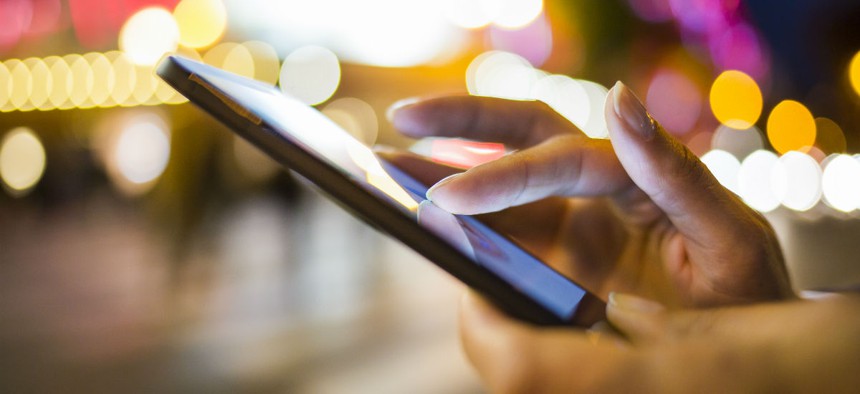NIH Wants to License Out a Mobile App to the Private Sector

LDprod/Shutterstock.com
The app would combine users' location data with their answers to questions about their psychological wellbeing to predict their future mental health.
The National Institutes for Health is trying to commercialize its inventions by licensing them out, a new Federal Register notice shows.
The technology available for licensing includes a mobile app that monitors users' psychological health by asking them questions throughout the day, as well as research that could be useful in the treatment of cancers.
According to federal patent code, agencies often grant licenses to government-owned inventions to "call forth the investment capital and expenditures needed to bring the invention to practical application" and to "promote the invention's utilization by the public."
The agency can grant nonexclusive, co-exclusive, partially exclusive, and exclusive licenses, which can be royalty free or in exchange for royalties.
Inventions available for licensing include:
- A diagnostic process that could test for lupus, type I diabetes, HIV and Lyme disease within 3.5 minutes
- A mobile app that monitors a patient's location, inquires about his or her psychological status and combines these data points to "predict a future psychological state." This technology could warn users if they are at risk of relapsing into drug use, for instance.
- Compounds that could reduce neuroinflammation related to neural diseases
- A system for generating biological cells that could help combat a cancer's metastasis
- A new method for diagnosing age-related cardiovascular diseases by assessing protein levels that weren't previously linked to cardiovascular aging
(Image via LDprod/ Shutterstock.com)





